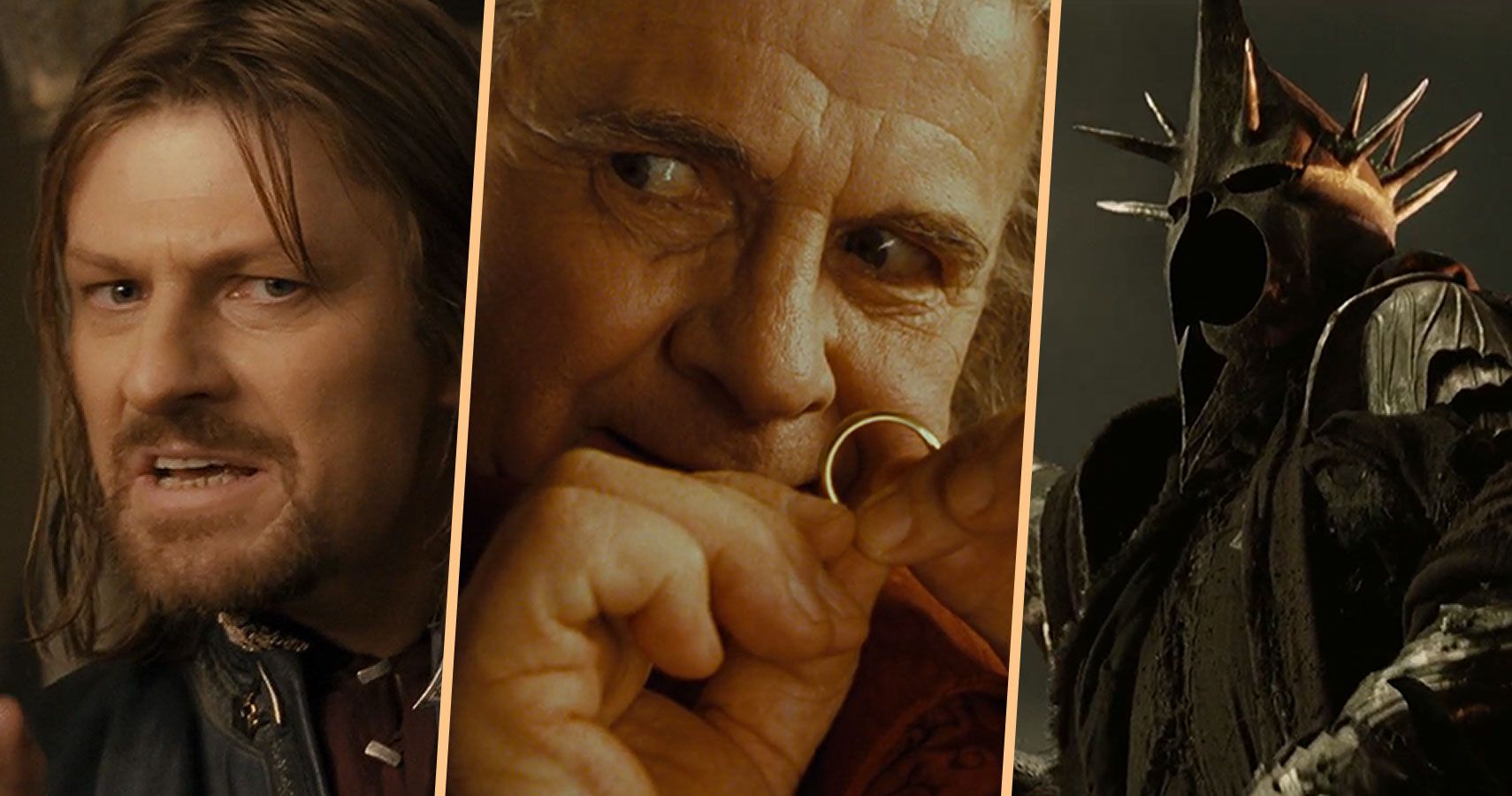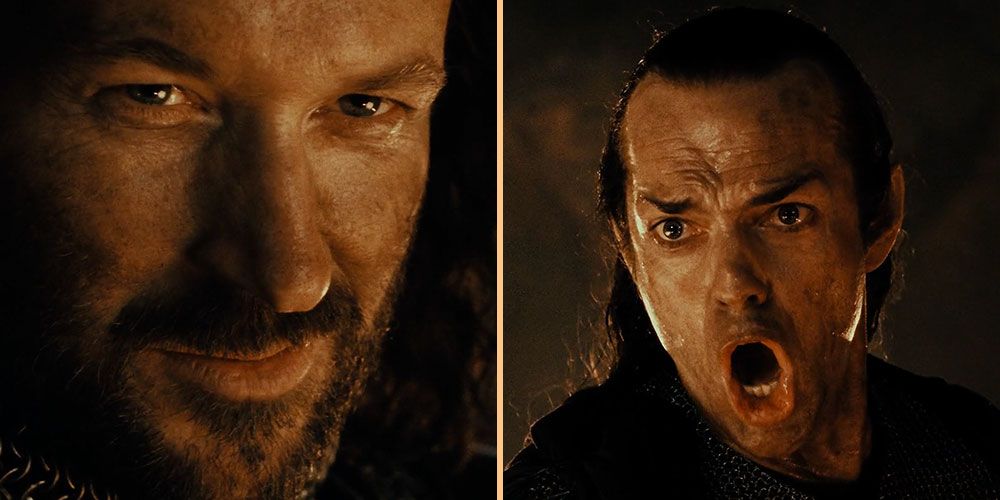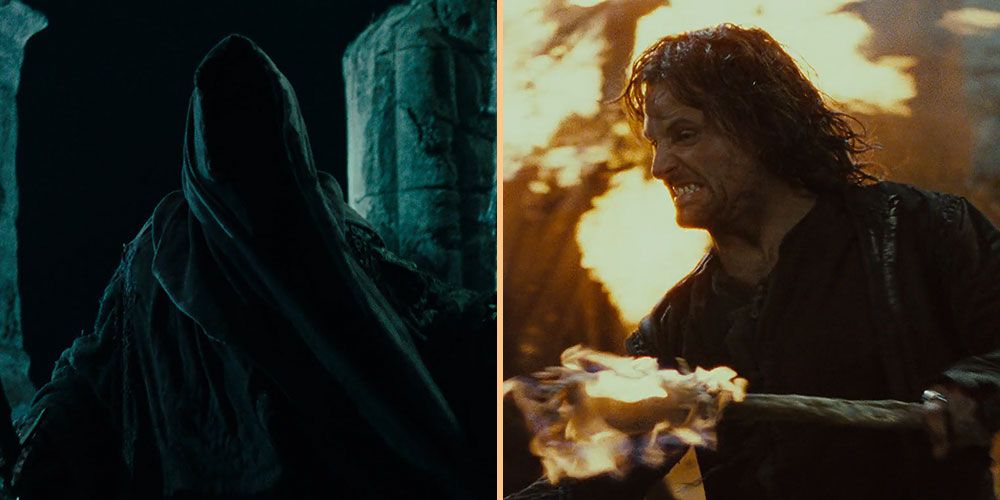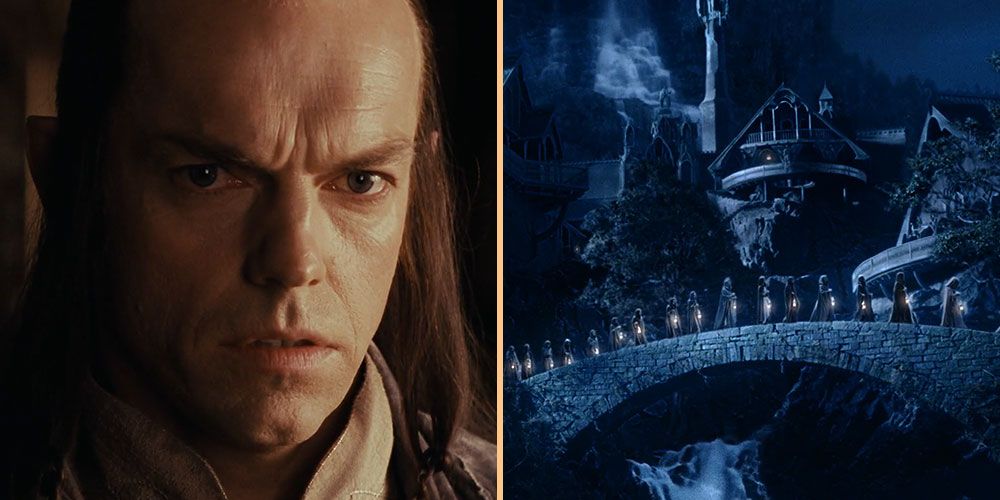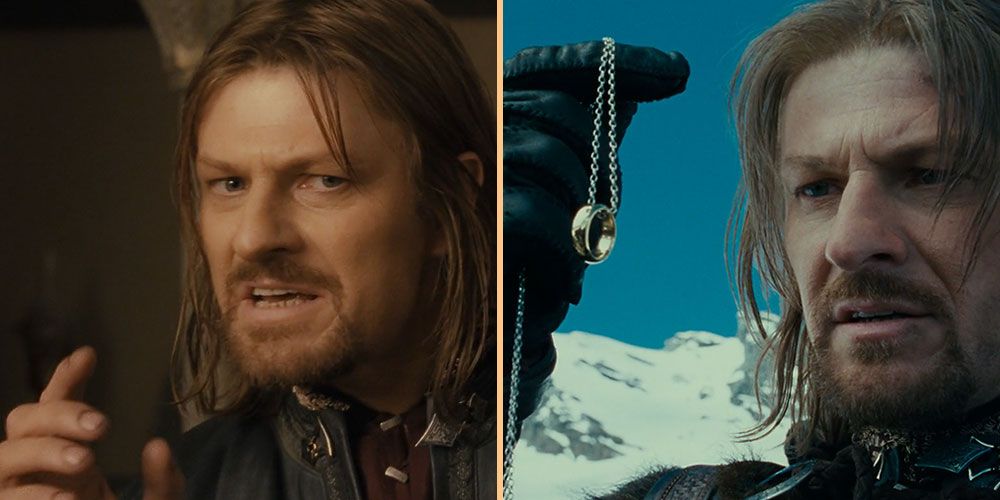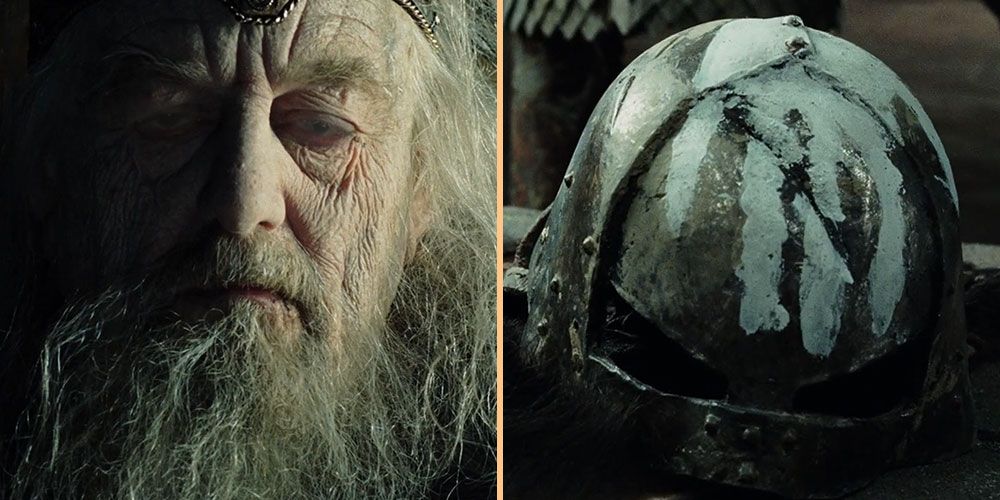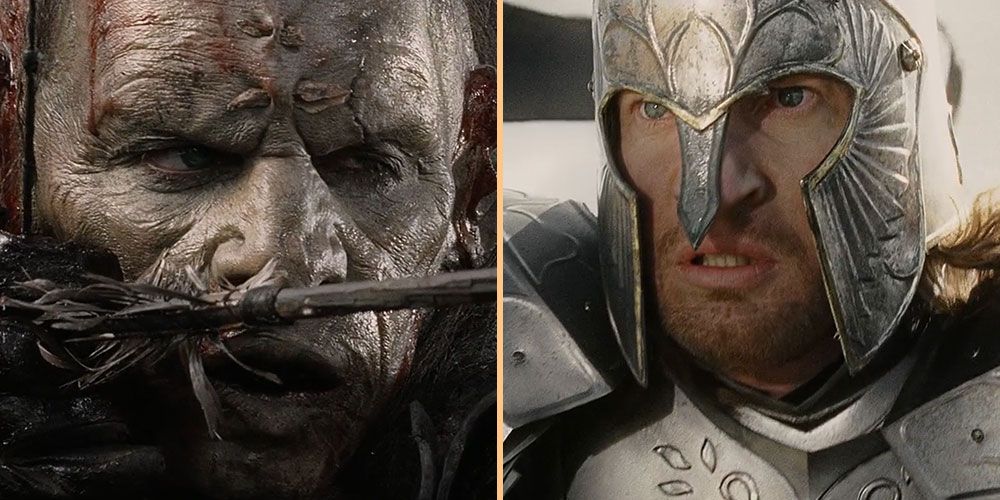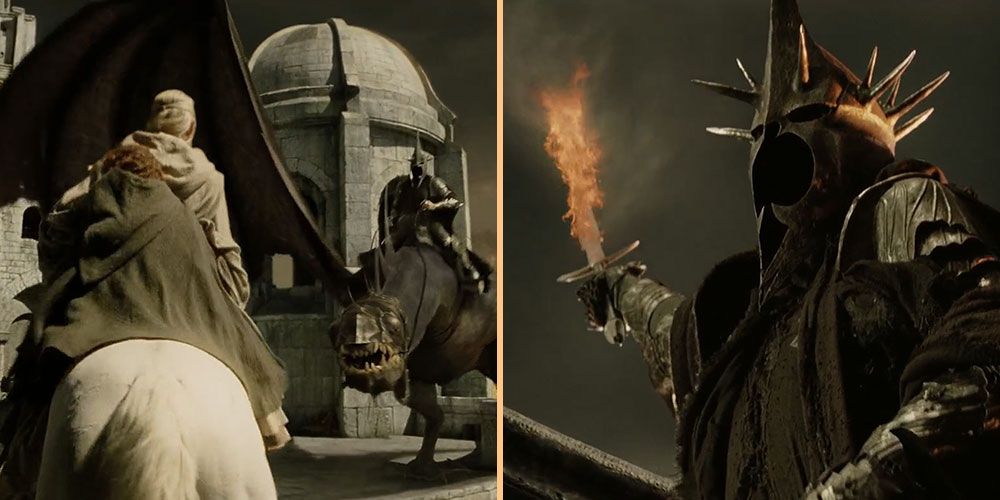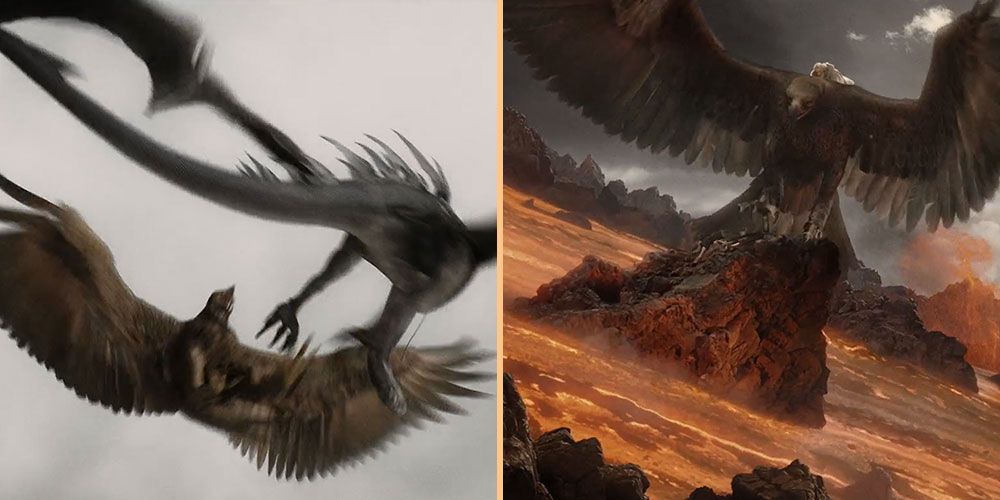Director Peter Jackson's Lord Of The Rings films, and the books they were based on, are timeless examples of literary master craftwork. J.R.R. Tolkien's sprawling world of Middle Earth has given us one of the most immersive and beloved fantasy adventure stories in modern folklore.
It's also left a lot of fans scratching their heads when it comes to certain plot points. Here's ten things that make no sense about the entire quest revolving around the destruction of the One Ring, which are sure to raise some questions!
Isildur's Post-War Reign
The prologue of The Fellowship Of The Ring tells of the victory over the Dark Lord Sauron, before later shifting the focus to Isildur, who was responsible for cutting the ring from Sauron's hand. Both Isildur and Elrond race to Mount Doom to destroy the Ring once and for all.
However, Isildur claims the Ring for himself, its corrupting powers already at work. Rather than confront him, Elrond allows Isildur to keep the Ring. It's odd to suggest that he would have allowed it to remain in his possession, knowing the danger. Isildur would go on to reign as King of Gondor for several more years before he was slain by Orcs, causing the Ring to be lost. Why no one thought to take the ring from him during this period remains a mystery.
Aragorn vs. The Ringwraiths
The Nazgûl are some of the fiercest and most frightening underlings in Sauron's army. Originally men who fell into corruption and shadow after being given Rings of Power by Sauron, they later fought as soulless harbingers of death and darkness. In Fellowship, "the Nine" track Frodo Baggins in an attempt to reclaim the One Ring for their Master, which comprises the first half of the film.
Things get serious when the Nazgûl attack the Hobbits on Weathertop, ending with Frodo being stabbed by a Morgul Blade. Aragorn then intervenes, fending off all the Nazgûl at the same time, and sending them fleeing in terror. Yes, the Wraiths are averse to flame, but their quick dismissal isn't quite made clear to fans who haven't read the book. Especially given how ferocious the Nazgûl are in a fight.
The Elves' Journey To The Undying Lands
Men live and die far quicker than the Elves, who are immortal and everlasting. That makes it all the more peculiar that they would suddenly abandon Middle Earth and sail for the Undying Lands, just as Sauron's forces massed to full strength. When Gandalf informs Elrond that the One Ring has been found, no attempt is made to stop the Elves and amass them for a new war campaign.
While Elrond does say that the Time of Men has come for them to take up arms against Sauron, that would be a risky bet, even on a good day. Had Sauron succeeded in achieving his goals, he would have spread out across the world like a plague. It's true there is no indication Sauron could have affected the Undying Lands, and it's also true the Elves had already started to leave Middle-Earth, but for viewers who haven't read the books, it seems like a weak justification.
Boromir's Presence
From the very moment he glimpsed the One Ring during the Secret Council in Rivendell, Boromir was enchanted by it, and began suggesting they use it against Sauron. Both Elrond and Gandalf quickly picked up on Boromir's dangerous words, the latter using the black speech of Mordor to drive home just how terrifying a prospect it could be to use the Ring.
True fans will know that Boromir is allowed to stay because of his political position, but his obsession with the ring is so tangible in the films it feels like a mistake from the get-go. He made little attempt to hide it, and members of the Fellowship knew that he could not be trusted around Frodo. And still, they let him stay. While an honorable man by every account, Boromir's weakness over the Ring should have been a catalyst to send him home.
Saruman's Hold Over Théoden
Watching a King disintegrate both physically and mentally would be enough for anyone to step back and be suspicious. It may have been a slow descent, but the movies change his physical appearance to an unmistakably 'evil' degree. When Éomer and the Riders of Rohan engaged in several battles with Uruk-hai, they brought it to the ailing King Théoden's attention, calling out Saruman as the culprit.
Théoden's fragile mental state, combined with Grima Wormtongue's influence, would have been enough to turn the tide of public opinion. Yet, Éomer and his men were banished as traitors, while the rest remained loyal to Théoden... for some reason.
The Taking Of Osgiliath
Few aspects of Return Of The King make less sense than the sacking of Osgiliath. For all intents and purposes, it was a numbers game from the start. Denethor was obsessed with keeping Osgiliath as a chokepoint against Mordor's forces, which begs the question: why he didn't send a larger force.
Indeed, Denethor seems to think nothing of sending an incredibly small contingent of soldiers to hold the city. Why not send a larger force and be done with it? Securing Osgiliath would have gone a long way towards stemming the tide of Sauron's attacks on Gondor, or at least bought it valuable time.
Gandalf vs. The Witch-King
The Nazgûl are powerful adversaries and the Witch-King of Angmar is a capable warrior in his own right, but why would Gandalf the White be so susceptible to his attacks? Even Gandalf the Grey was capable of slaying a Balrog in a days-long fight without rest.
Aragorn managed to fend of all nine Nazgûl on Weathertop, but even the vastly more powerful Gandalf the White was trounced without the Witch-King laying a finger on him. It seems incomprehensible that a Balrog-slayer would be bested in seconds by the Witch-King.
The Eagles
Throughout the trilogy, the Eagles were used as a convenient plot device to save the day. They rescued Gandalf from Saruman's clutches at the top of Orthanc, and they would later attack and battle the Nazgûl outright, before seeking out the exhausted, near-dead bodies of Frodo and Sam.
Of course, this begs the question as to why the Eagles weren't called upon in the first place, to act as transport to bring the Fellowship closer to Mordor. At the very least, this would have shaved a lot of time off their journey, even if they wanted to continue sneaking for the end of the journey. But then again, that would negate the need for an actual adventure, wouldn't it?

